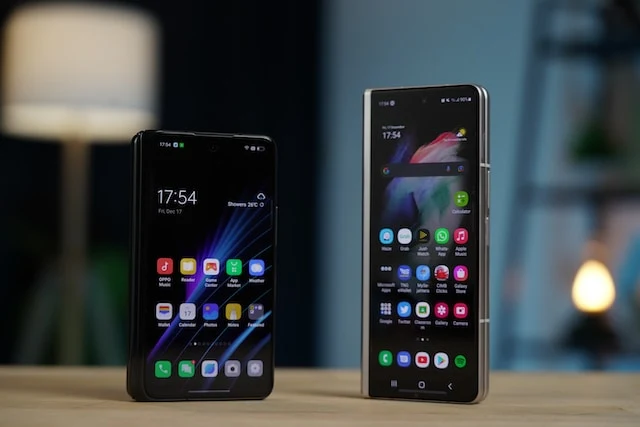The Future of Smartphones: Beyond Foldable Screens
 |
| OPPO Find N and Samsung Fold |
Smartphones have become an essential part of our lives, connecting us to the internet, entertainment, social media, and each other. But what will the next generation of smartphones look like? How will they evolve beyond the current models that offer incremental improvements in performance, design, and features?
One of the most anticipated trends in the smartphone industry is the adoption of 5G technology, which promises faster speeds, lower latency, and more reliable connectivity. According to the Consumer Technology Association (CTA), 5G smartphones will account for 62% of all smartphone units in 2021, rising to 72% in 2022. 5G will enable new use cases for smartphones, such as cloud gaming, augmented reality, virtual reality, and smart home integration.
Another trend that is gaining traction is the development of foldable screens, which allow users to switch between different display sizes and modes. Samsung, OPPO and Huawei are the leading players in this segment, offering devices that can fold inward or outward to create a larger or smaller screen. Foldable screens are expected to increase the demand for flexible OLED displays, which can bend without breaking. However, foldable screens are still not a mainstream option, as they face challenges such as high costs, durability issues, and limited availability.
A more futuristic trend that could revolutionize the smartphone industry is the emergence of artificial intelligence (AI) and machine learning (ML) capabilities. AI and ML can enhance the functionality and performance of smartphones by enabling features such as voice assistants, facial recognition, gesture control, image processing, natural language processing, and more. AI and ML can also help optimize the battery life, security, and user experience of smartphones. For example, Google's Pixel phones use AI to improve the quality of photos and videos taken by the camera. Apple's iPhone uses ML to learn from the user's behavior and preferences to provide personalized suggestions and services.
One of the potential applications of AI and ML in smartphones is the creation of self-learning devices that can adapt to the user's needs and preferences over time. Imagine a smartphone that can automatically adjust its settings based on your location, time of day, mood, and activity. A smartphone that can learn from your habits and patterns and anticipate your needs before you ask. A smartphone that can communicate with other devices and services seamlessly and securely. A smartphone that can evolve with you as you grow and change.
This is not a sourced idea but an imaginary one based on the current trends in AI and ML. However, it is not impossible to imagine that such a device could exist in the near future. The smartphone industry is constantly innovating and experimenting with new technologies and concepts to create better products for consumers. The future of smartphones is beyond foldable screens; it is smart, adaptive, and personalized.



